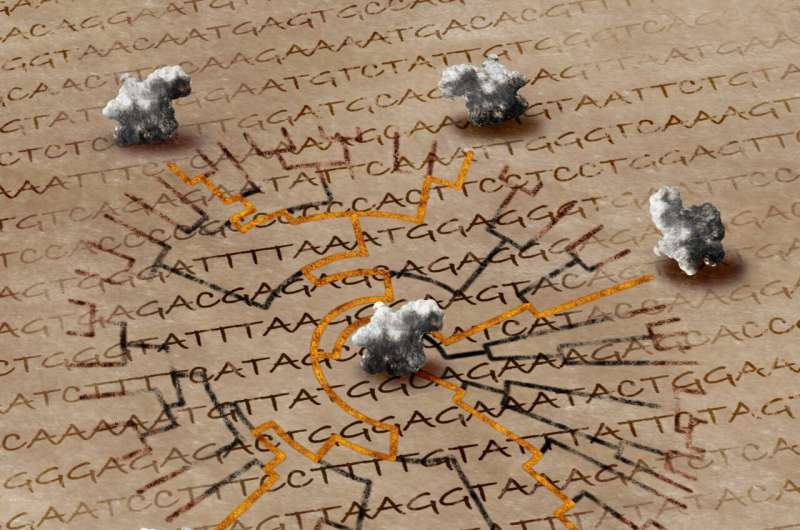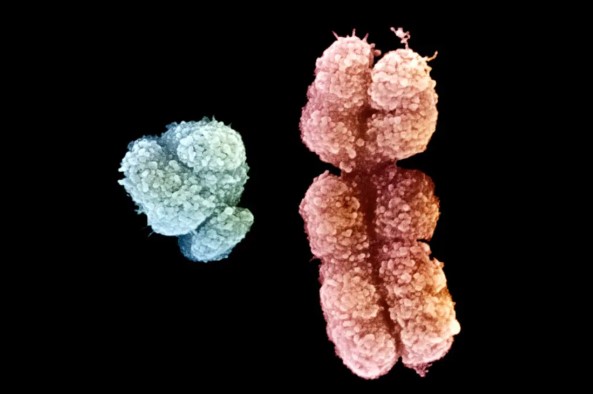Scientists Discover Why Masturbation is Crucial for Human Evolution

How Often Should You Masturbate?
Although masturbation occurs frequently in the animal kingdom, primates—including humans—are particularly prone to it. This behavior was formerly thought to be either abnormal or a result of sexual excitation, and the research that was available was insufficiently cohesive to provide a clear picture of its distribution, evolutionary background, or adaptive importance. But according to a recent study that was published in the Proceedings of the Royal Society B, this behavior might be advantageous for evolution.
According to the research, masturbation is an ancient primatorial behavior that improves reproductive success and reduces the risk of STIs, at least in male creatures.
According to the research, masturbation is an ancient primatorial behavior that improves reproductive success and reduces the risk of STIs, at least in male creatures.
Did you know? You can comment on this post! Just scroll down
The largest-ever dataset on primate masturbation was compiled by Dr. Matilda Brindle (UCL Anthropology) and associates. They gathered data from around 400 sources, including 246 scholarly publications, 150 questionnaires, and private correspondence from zookeepers and primatologists. In order to determine when and why autosexual behavior arose in both males and females, the authors used these data to trace its dissemination throughout primates.
The group discovered that masturbation has a lengthy evolutionary history in primates and was probably present in the common ancestor of all apes and monkeys, including humans. Because there was little information available for lemurs, lorises, and tarsiers, it was unclear if their ancestors engaged in masturbation.
The group discovered that masturbation has a lengthy evolutionary history in primates and was probably present in the common ancestor of all apes and monkeys, including humans. Because there was little information available for lemurs, lorises, and tarsiers, it was unclear if their ancestors engaged in masturbation.
Dr. Brindle and others investigated a number of theories to determine why evolution would result in this apparently non-functional characteristic.
According to the "postcopulatory selection hypothesis," successful fertilization is facilitated by masturbating. There are several ways to accomplish this. First, before sex, masturbating (without ejaculation) might raise arousal. By facilitating speedier ejaculation, this may be an especially helpful strategy for low-ranking males who are likely to be interrupted during copulation. Second, males can lose inferior semen through masturbation (accompanied by ejaculation), which makes fresh, high-quality sperm available for mating and more likely to outcompete those of other males. The researchers discovered evidence to corroborate this theory, demonstrating that high levels of male-to-male competition in multi-male mating systems had co-evolved with male masturbation.
According to the "postcopulatory selection hypothesis," successful fertilization is facilitated by masturbating. There are several ways to accomplish this. First, before sex, masturbating (without ejaculation) might raise arousal. By facilitating speedier ejaculation, this may be an especially helpful strategy for low-ranking males who are likely to be interrupted during copulation. Second, males can lose inferior semen through masturbation (accompanied by ejaculation), which makes fresh, high-quality sperm available for mating and more likely to outcompete those of other males. The researchers discovered evidence to corroborate this theory, demonstrating that high levels of male-to-male competition in multi-male mating systems had co-evolved with male masturbation.
According to the "pathogen avoidance hypothesis," male masturbation lowers the risk of getting a STI after copulation by using the ejaculate produced during masturbation to clean the urethra, which is a common site of infection for STIs. The scientists also discovered evidence that supports this theory, demonstrating that across the primate tree of life, male masturbation co-evolved with a high STI load.
It's still unclear what female masturbation means. Even though it occurs frequently, fewer reports describe it, which reduces statistics' analytical power. The team contends that in order to fully comprehend the evolutionary significance of female masturbation, additional information on female sexual behavior is required.
It's still unclear what female masturbation means. Even though it occurs frequently, fewer reports describe it, which reduces statistics' analytical power. The team contends that in order to fully comprehend the evolutionary significance of female masturbation, additional information on female sexual behavior is required.
"Our findings represent a significant advance in our understanding of the functions of masturbation and help shed light on a very common, but little understood, sexual behavior," stated lead researcher Dr. Brindle. Masturbation is part of a repertoire of healthy sexual behaviors, as evidenced by the fact that autosexual conduct may have an adaptive purpose, is common in the primate order, and is engaged in by both sexes in captivity and in the wild.
Reference: Matilda Brindle, Henry Ferguson-Gow, Joseph Williamson, Ruth Thomsen, and Volker Sommer, "The evolution of masturbation is associated with postcopulatory selection and pathogen avoidance in primates," Proceedings of the Royal Society B Biological Sciences, 7 June 2023.
Reference: Matilda Brindle, Henry Ferguson-Gow, Joseph Williamson, Ruth Thomsen, and Volker Sommer, "The evolution of masturbation is associated with postcopulatory selection and pathogen avoidance in primates," Proceedings of the Royal Society B Biological Sciences, 7 June 2023.
The study, supported by the Natural Environment Research Council, involved researchers in UCL Anthropology, the UCL Centre for Biodiversity & Environment Research, and Queen Mary University of London.
Article Posted 3 Months ago. You can post your own articles and it will be published for free.
No Registration is required! But we review before publishing! Click here to get started
One Favour Please! Subscribe To Our YouTube Channel!
468k
Cook Amazing Nigerian Dishes, Follow Adorable Kitchen YouTube Channel!
1.1m
Like us on Facebook, Follow on Twitter
React and Comment
Click Here To Hide More Posts Like This
Watch and Download Free Mobile Movies, Read entertainment news and reports, Download music and Upload your own For FREE.
Submit Your Content to be published for you FREE! We thrive on user-submitted content!
But we moderate!

















